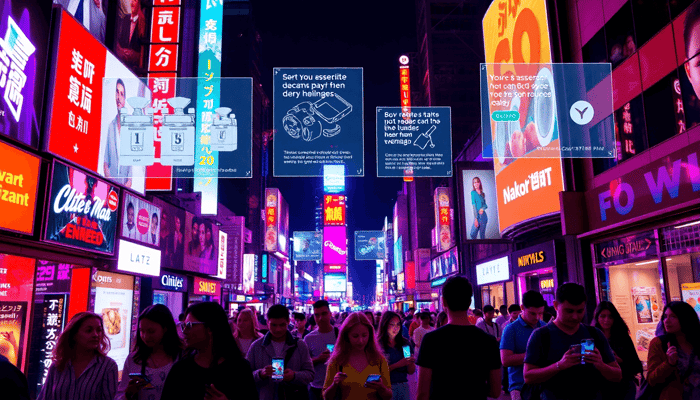Table of Contents
Essential Marketing Strategies for 2025:
As we approach the year 2025, the marketing landscape is set to undergo a transformative shift. The rapid advancements in technology, changing consumer behaviors, and the ever-evolving digital landscape have created a new era of marketing that requires a strategic and forward-thinking approach. In this comprehensive blog post, we will explore the essential marketing strategies that will help businesses thrive in the years to come.
Understanding the Shifting Landscape
The marketing landscape of 2025 will be vastly different from what we've experienced in the past. Emerging technologies, such as artificial intelligence (AI), augmented reality (AR), and voice-activated assistants, will play a crucial role in shaping the way businesses interact with their customers. Additionally, the continued rise of social media and the increasing importance of personalized content will redefine the way brands engage with their target audience.
The Rise of AI and Automation
Artificial intelligence will become a game-changer in the world of marketing. Businesses will leverage AI-powered tools to automate various tasks, from customer segmentation and personalization to predictive analytics and content creation. By harnessing the power of AI, marketers will be able to make data-driven decisions, optimize campaigns, and deliver a more personalized experience to their customers.
The Dominance of Personalized Content
In a world where consumers are bombarded with countless marketing messages, the ability to create personalized and relevant content will be the key to standing out. Businesses will need to invest in advanced data analytics and customer profiling to understand their target audience's preferences, behaviors, and pain points. By delivering content that resonates with individual customers, brands will be able to build stronger relationships and foster brand loyalty.
The Importance of Omnichannel Experiences
The lines between online and offline experiences will continue to blur, and businesses will need to adopt an omnichannel approach to their marketing strategies. Customers will expect a seamless and consistent experience across multiple touchpoints, from social media and e-commerce platforms to physical retail stores and customer service channels. Integrating these channels and providing a cohesive brand experience will be crucial for success in 2025.
Embracing Emerging Technologies
To stay ahead of the curve, businesses must embrace the latest technological advancements and incorporate them into their marketing strategies. From virtual and augmented reality to voice-activated assistants and the Internet of Things (IoT), these technologies will shape the future of marketing.
Virtual and Augmented Reality
Virtual reality (VR) and augmented reality (AR) will become increasingly prevalent in the marketing landscape. Businesses will leverage these technologies to create immersive experiences, allow customers to virtually try products, and provide a more engaging and interactive brand experience. By investing in VR and AR, brands can differentiate themselves and capture the attention of tech-savvy consumers.
Voice-Activated Assistants
The rise of voice-activated assistants, such as Alexa, Siri, and Google Assistant, will transform the way consumers interact with brands. Businesses will need to optimize their content and marketing strategies for voice search, ensuring their products and services are easily discoverable and accessible through voice-based queries. Integrating voice-activated features into their marketing mix will be crucial for staying relevant in the future.
The Internet of Things (IoT)
The proliferation of connected devices, known as the Internet of Things (IoT), will provide businesses with a wealth of data and new opportunities for targeted marketing. By leveraging IoT-enabled devices, brands can gather real-time insights into consumer behavior, preferences, and habits, and then use this information to deliver personalized experiences and targeted marketing campaigns.
Embracing the Power of Data and Analytics
In the marketing landscape of 2025, data and analytics will be the foundation for success. Businesses must harness the power of data to make informed decisions, optimize their marketing strategies, and deliver a more personalized and effective customer experience.
Data-Driven Decision Making
The ability to collect, analyze, and interpret data will be essential for businesses to stay competitive. Marketers will need to invest in advanced data analytics tools and techniques to gain a deeper understanding of their target audience, measure the effectiveness of their campaigns, and make data-driven decisions that drive business growth.
Predictive Analytics and Forecasting
By leveraging predictive analytics, businesses will be able to anticipate customer behavior, identify emerging trends, and make more accurate forecasts. This will enable them to proactively adjust their marketing strategies, allocate resources more effectively, and stay ahead of the competition.
Personalization and Hyper-Targeting
The abundance of data will allow businesses to create highly personalized and targeted marketing campaigns. By analyzing customer data, businesses can develop detailed user profiles, understand individual preferences, and deliver tailored content and offers that resonate with each customer. This level of personalization will be crucial for building strong customer relationships and driving conversions.
Fostering a Culture of Innovation
To thrive in the marketing landscape of 2025, businesses must cultivate a culture of innovation and adaptability. This will require a shift in mindset, a willingness to experiment, and a commitment to continuous learning and improvement.
Embracing a Startup Mentality
Businesses should adopt a startup mentality, embracing a culture of experimentation, risk-taking, and rapid iteration. This agile approach will allow them to quickly respond to changing market conditions, test new ideas, and pivot their strategies as needed.
Investing in Continuous Learning
Staying ahead of the curve will require a commitment to continuous learning. Businesses should invest in training and development programs, encourage their teams to stay up-to-date with industry trends, and foster a culture of knowledge-sharing and collaboration.
Collaboration and Partnerships
Successful marketing strategies in 2025 will often involve collaboration and partnerships with other businesses, industry experts, and technology providers. By leveraging the expertise and resources of external partners, businesses can stay ahead of the curve, access new technologies, and deliver more innovative and effective marketing solutions.
Conclusion
The marketing landscape of 2025 will be a dynamic and challenging environment, but those who embrace the strategies outlined in this blog post will be well-positioned for success. By understanding the shifting landscape, embracing emerging technologies, harnessing the power of data and analytics, and fostering a culture of innovation, businesses can position themselves as leaders in their respective industries and thrive in the years to come.




